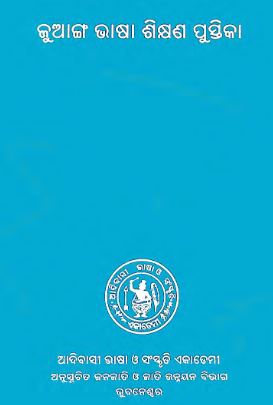Juang Bhasa Sikshana Pustika by Chandan Kumar Sahu, published in 2005, emerges as a seminal work in Odia literature, dedicated to the linguistic education of the Juang tribal community. This guidebook represents a significant milestone in the realm of tribal language education, aiming not only to impart practical language skills but also to preserve and promote the unique cultural heritage of the Juang people.
Chandan Kumar Sahu, renowned for his expertise in tribal languages and education, undertakes a comprehensive approach in “Juang Bhasa Sikshana Pustika.” His work is not merely instructional but a heartfelt endeavor to empower the Juang community through language proficiency. Recognizing the importance of language as a tool for cultural identity and social integration, Sahu meticulously designs the guidebook to cater to the specific linguistic needs and cultural context of the Juang tribe.
At its core, “Juang Bhasa Sikshana Pustika” serves as a practical guide for educators, linguists, and community leaders involved in Juang language revitalization efforts. The book is structured to facilitate step-by-step language learning, encompassing grammar, vocabulary, and conversational skills in Odia, the regional language prevalent in Odisha. By equipping Juang learners with proficiency in Odia, Sahu ensures their ability to navigate mainstream educational and socio-economic opportunities more effectively.
Beyond linguistic education, the guidebook emphasizes the preservation of Juang cultural heritage. Sahu includes sections dedicated to Juang folklore, rituals, and traditions, intertwining language learning with cultural appreciation. This holistic approach not only enhances language acquisition but also fosters a sense of pride and continuity among Juang youth in their cultural identity.
“Juang Bhasa Sikshana Pustika” also addresses the socio-economic challenges faced by the Juang community. Sahu advocates for inclusive educational policies and resources tailored to tribal communities, advocating for equitable access to educational opportunities and resources. His advocacy extends beyond the pages of the book, urging policymakers and stakeholders to prioritize the linguistic and educational rights of marginalized tribal groups like the Juang.
Moreover, the guidebook underscores the resilience and adaptability of Odia literature in addressing contemporary challenges. Through innovative pedagogical approaches and culturally sensitive content, Sahu highlights the transformative potential of education in empowering marginalized communities and fostering social cohesion.
In conclusion, Chandan Kumar Sahu’s “Juang Bhasa Sikshana Pustika” stands as a beacon of hope and empowerment in Odia literature and educational discourse. By blending linguistic education with cultural preservation and socio-economic advocacy, the guidebook not only equips Juang learners with essential skills but also strengthens their cultural identity and resilience. As a guidebook and advocacy tool, it inspires readers and stakeholders to champion inclusive education and uphold the rights of tribal communities, making a profound impact on the landscape of tribal education in Odisha and beyond.
Books Info
| Books name | Juang Bhasa Sikshana Pustika |
| Author | Chandan Kumar Sahu, C. |
| No Of pages | 97 |
| Publisher | Kusumita Publication |
| Publication | 2005 |
| Printed At | Print Art |
| Distributor | NA |

